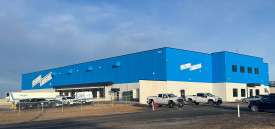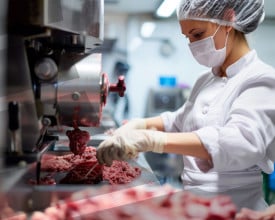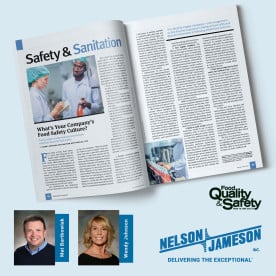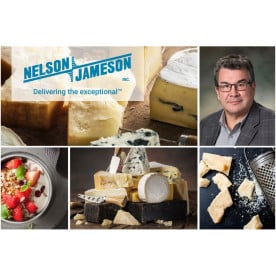education
- February 01, 2021
Resources made available with Nelson-Jameson's Learning Center! This educational learning library was created to encourage our customers to seek out information, when applicable, to aid them in making informed purchasing decisions within the food, dairy, and beverage industries. By providing this free resource for anyone to use, our goal is to have you feel comfortable and confident in the products you purchase.
An intriguing aspect of our Learning Center is that the information we are providing is supplied to us by manufacturers, and industry associations. It is our goal to relay to you the most up-to-date information for your convenience. The information within this resource falls into several categories: Laboratory & QA/QC, Packaging & Ingredients,
- June 23, 2020
A critical component in food safety is the detection of contaminants. One of the worst nightmares of anyone working in food processing, is finding something in the final product that is not supposed to be there. This can cause costly product loss, clean-up and maintenance costs, and the potential for recalls and/or litigation. Even though everyone tries to prevent foreign object contamination, pieces of tools such as scrapers can break off, or items such as pens can fall into the product. To make sure that these items are caught, and that contaminated product does not make it out the door, many plants utilize metal detection devices and products.
Metal detectable products are constructed of a few different materials. They are often blue for easy visual detection. Blue is also the most common non-food color.
- September 24, 2018
Nelson-Jameson is proud to announce that we will be holding "A 'Calibration' of Lab Testing" this October 17th at the University of Wisconsin-Richland. The seminar will be lead by two Nelson-Jameson Lab Team members in our Technical Services area: Steve Zdun and Dayton Bruha. Best practices in pH, microbiology, and salt will all be featured in the workshop. Perfect for food and beverage lab personnel, participants will get a hands-on approach to tackling these core areas.
Registration before October 1st, will guarantee an early bird rate of $150 ($175 after). Call one of our customer service representatives and mention item #333-3333 for more information!
- February 10, 2016
Six years ago, I had the honor of going back to school. Before you start envisioning a Rodney Dangerfield ‘80’s movie, I can assure you that it wasn’t that kind of school. Yes, it took place at the renowned party academic institution of the University of Wisconsin-Madison, but this was cheese school. The Wisconsin Cheese Tech Short Course, to be exact. I had just joined Nelson-Jameson, Inc. after working in the retail and merchandising industry for a decade, and I needed to learn about the core business of my new employer. So, like many of my colleagues before me, I was sent to Madison for a week of immersive classes provided by the UW’s Center for Dairy Research, one of the world’s premier dairy research institutions with which Nelson-Jameson has always held a close relationship.
Taught over the course of a week, the Cheese Tech Short Course
- January 06, 2016
At Nelson-Jameson, we like to remain involved and in-the-know. We offer continued training for our employees, attend and exhibit at many trade shows, and are involved in networking, educational and philanthropic organizations that range from community-minded to industry-oriented. One of these trade associations to which Nelson-Jameson belongs is FISA, the Food Industry Suppliers Association.
FISA is trade group dedicated to promoting distribution in high purity industries, such as food and beverage, dairy, pharmaceutical, personal care and biotechnology. Its members are comprised of distributors and manufacturers who go to market through distribution. Nelson-Jameson has been involved with FISA since its inception more than 50 years ago, and we’ve found tremendous value in the networking and educational opportunities provided by FISA.
- December 09, 2015
You may have seen our announcement earlier this year that we started working with Cherney Microbiological Services to provide educational opportunities for customers interested in learning more about food safety, sanitation, and a host of other topics.
Well, we are happy to announce that Cherney has released their Cherney College course offerings for 2016!
Contact us at [email protected] or call 800-826-8302 if you would like to learn more about any of the following course offerings or to register (early bird discounts are available for registrations submitted 30 days prior to the course date). Courses are held in Green Bay, Wisconsin.
Course





